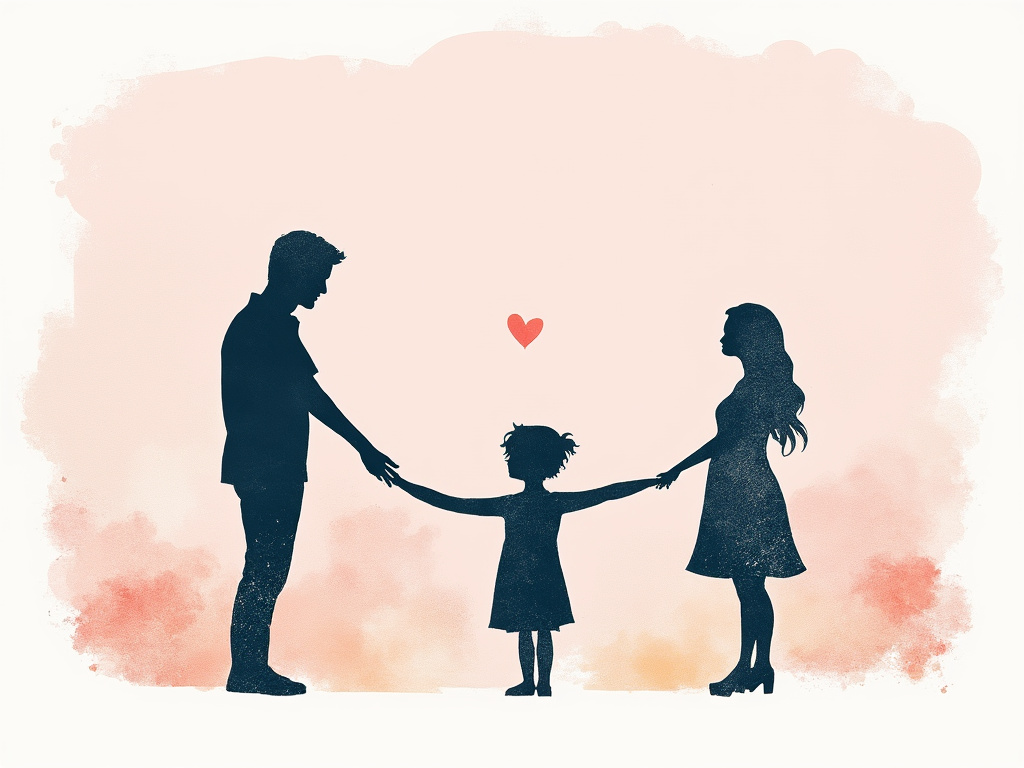
Mindful Humor in Relationships: Avoiding Hostile Jokes That Damage Connection
Reading time: 8 minutes
Ever noticed how a single “harmless” joke can shift the entire energy in a relationship? You’re not alone! In our hyper-connected world where humor travels at lightning speed through texts, memes, and video calls, understanding the delicate balance between playful banter and relationship-damaging humor has never been more crucial.
Table of Contents
- Understanding the Psychology of Humor in Relationships
- Identifying Hostile vs. Healthy Humor Patterns
- Digital Communication: Where Jokes Go Wrong
- Building Connection Through Mindful Comedy
- Recovery Strategies When Humor Backfires
- Your Humor Transformation Toolkit
- Frequently Asked Questions
Understanding the Psychology of Humor in Relationships
Research from the University of Kansas reveals that couples who laugh together are 67% more likely to report relationship satisfaction. But here’s the catch: not all laughter creates equal connection. Dr. Jeffrey Hall’s groundbreaking study found that while shared humor strengthens bonds, aggressive or sarcastic humor patterns can erode trust faster than most couples realize.
Think about Sarah and Mike’s story. They met through a dating app, bonding over witty exchanges and playful teasing. But six months in, Mike’s “jokes” about Sarah’s career ambitions began feeling less like playful banter and more like subtle undermining. What started as connection-building humor had transformed into a weapon that slowly chipped away at their foundation.
The Neuroscience Behind Humor and Connection
When we share genuine, positive humor, our brains release a cocktail of bonding chemicals: oxytocin, dopamine, and endorphins. However, hostile humor triggers cortisol production, activating our fight-or-flight response even when we consciously “laugh it off.” This biological reality explains why seemingly minor joke patterns can create lasting relationship damage.
Digital Age Humor Challenges
Modern relationships face unique humor hurdles:
- Tone interpretation: 73% of humor context gets lost in text communication
- Meme culture: Shared jokes from external sources can inadvertently contain hostile undertones
- Public vs. private humor: Social media creates pressure for performative rather than authentic humor
- Speed of communication: Quick-fire joke exchanges leave little time for emotional processing
Identifying Hostile vs. Healthy Humor Patterns
The difference between connection-building and connection-damaging humor often lies in subtle patterns that develop over time. Let’s examine a practical framework for recognition:
| Humor Type | Healthy Pattern | Hostile Pattern | Relationship Impact |
|---|---|---|---|
| Teasing | Playful, mutual, about quirks | One-sided, about insecurities | Builds vs. erodes confidence |
| Self-deprecating | Occasional, lighthearted | Frequent, seeking validation | Models vs. demands emotional labor |
| Situational | Shared observations | Partner as punchline | Creates vs. destroys intimacy |
| Timing | Reads emotional climate | Ignores partner’s state | Shows vs. lacks empathy |
| Recovery | Adjusts when humor misses | Doubles down or dismisses | Builds vs. breaks trust |
The “Intent vs. Impact” Dilemma
Consider Jessica and David’s experience: David regularly made jokes about Jessica’s cooking, believing he was being playfully affectionate. His intent was harmless connection, but the impact was Jessica feeling criticized and unsupported. This classic scenario illustrates why impact matters more than intent in relationship humor.
Relationship therapist Dr. John Gottman’s research shows that couples who consistently prioritize impact over intent when humor goes wrong are 43% more likely to maintain long-term satisfaction.
Digital Communication: Where Jokes Go Wrong
Digital dating and relationships have revolutionized how we share humor, but they’ve also created new opportunities for misunderstanding. Let’s explore the specific challenges and solutions:
Text Message Humor Pitfalls
Quick Scenario: You’re texting your partner about your stressful day. They respond with a laughing emoji and “Drama queen strikes again!” Innocent teasing or dismissive hostility? The answer depends entirely on context, timing, and your relationship’s humor history.
Digital humor success strategies:
- Context setting: Establish emotional climate before introducing humor
- Emoji intentionality: Use emojis to clarify tone, not replace genuine expression
- Follow-up awareness: Check in when humor feels off
- Voice note alternatives: Use audio messages for nuanced humor delivery
Social Media Humor Dynamics
The pressure to be funny online can infiltrate private relationships. Couples increasingly report feeling like their private humor needs to be “performance-ready,” leading to artificial rather than authentic connection.
Humor Communication Effectiveness by Medium
92%
78%
65%
41%
27%
Building Connection Through Mindful Comedy
Transforming your humor approach requires intentional practice and emotional intelligence. Here’s your practical roadmap:
The HEART Framework for Healthy Humor
H – Honor your partner’s emotional state
Before introducing humor, genuinely assess where your partner is emotionally. A stressed partner needs support, not jokes about their stress.
E – Ensure mutual enjoyment
Healthy humor creates joy for both people, not entertainment for one at the other’s expense.
A – Avoid sensitive territories
Every person has topics that aren’t joke-worthy. Respect these boundaries consistently.
R – Respond to feedback immediately
When humor doesn’t land well, address it promptly rather than defending your intent.
T – Time your humor thoughtfully
Great comedic timing in relationships means reading the room, not just delivering punchlines.
Practical Implementation Strategies
Start with these immediate changes:
- The 24-hour rule: Wait a day before joking about your partner’s mistakes or embarrassing moments
- The mirror test: Ask yourself, “Would I want my partner to make this joke about me?”
- The recovery protocol: Develop a standard response for when humor goes wrong: acknowledge impact, apologize sincerely, adjust behavior
- The appreciation balance: For every teasing joke, offer two genuine compliments or appreciations
Recovery Strategies When Humor Backfires
Even with the best intentions, humor sometimes misses the mark. The difference between couples who grow stronger and those who grow apart lies in how they handle these moments.
Take Marcus and Elena’s experience: During a dinner party, Marcus made a joke about Elena’s directness, saying she “scares away waiters.” Elena felt embarrassed and diminished in front of friends. Marcus’s immediate response determined their relationship trajectory.
What Marcus did right:
- Noticed Elena’s immediate discomfort
- Privately acknowledged the impact within the hour
- Took full responsibility without defensiveness
- Asked specifically how to avoid similar situations
- Followed up over the following days to ensure recovery
The Repair Process
Effective humor repair follows a specific sequence:
- Immediate acknowledgment: “I can see that didn’t land well”
- Impact validation: “Help me understand how that felt for you”
- Sincere accountability: “I was wrong to say that, regardless of my intention”
- Behavioral commitment: “Here’s specifically what I’ll do differently”
- Follow-through demonstration: Consistent behavior change over time
Your Humor Transformation Toolkit
Ready to revolutionize how humor functions in your relationships? This isn’t about becoming humorless—it’s about becoming intentionally funny in ways that build rather than break connection.
Week 1: Assessment Phase
- Track your humor patterns for seven days
- Note when jokes create connection vs. tension
- Ask your partner for honest feedback about your humor style
- Identify your three most problematic humor habits
Week 2-3: Skill Building
- Practice the HEART framework daily
- Experiment with appreciation-based humor
- Develop your humor recovery protocols
- Focus on timing and context awareness
Week 4: Integration and Refinement
- Evaluate progress with your partner
- Adjust strategies based on real-world results
- Celebrate improvements in connection quality
- Plan long-term humor development goals
As digital communication continues reshaping how we connect, couples who master mindful humor will have a significant advantage in building lasting, satisfying relationships. The investment you make in transforming your humor approach today creates dividends in connection, trust, and joy for years to come.
Your challenge: Choose one hostile humor pattern you recognize in yourself and commit to replacing it with a connection-building alternative this week. Small changes in how we use humor can create profound shifts in relationship quality.
Frequently Asked Questions
How do I know if my humor is actually damaging my relationship?
Watch for these warning signs: your partner stops laughing at your jokes, they become defensive or quiet after your humor, they’ve directly told you certain jokes hurt, or you notice yourself making jokes when you’re angry or frustrated. Additionally, if you find yourself saying “I was just joking” frequently, this often indicates your humor is crossing boundaries. The most reliable indicator is asking your partner directly for honest feedback about your humor’s impact on them.
What should I do if my partner uses hostile humor but gets defensive when I bring it up?
Start by using “I” statements to describe the impact rather than labeling their behavior: “I feel diminished when jokes focus on my mistakes” rather than “You’re being hostile.” Choose a calm moment for this conversation, not immediately after a problematic joke. If defensiveness persists, consider couples therapy where a neutral third party can help navigate these patterns. Remember, you can’t control their response, but you can set boundaries about what humor you’ll accept in your presence.
Is it possible to be too careful with humor and lose spontaneity in our relationship?
Mindful humor doesn’t mean eliminating spontaneity—it means developing better instincts about what builds connection. Think of it like learning to drive: initially, you consciously check mirrors and signal, but eventually, these behaviors become automatic. The goal is developing intuitive awareness of your partner’s emotional state and humor preferences. Most couples report that as they become more intentional about humor, they actually feel freer to be playful because they’re not worried about accidentally causing hurt.

Article reviewed by Gabriela Costa, Relationship Strategist | Aligning Love & Life Goals, on May 29, 2025
